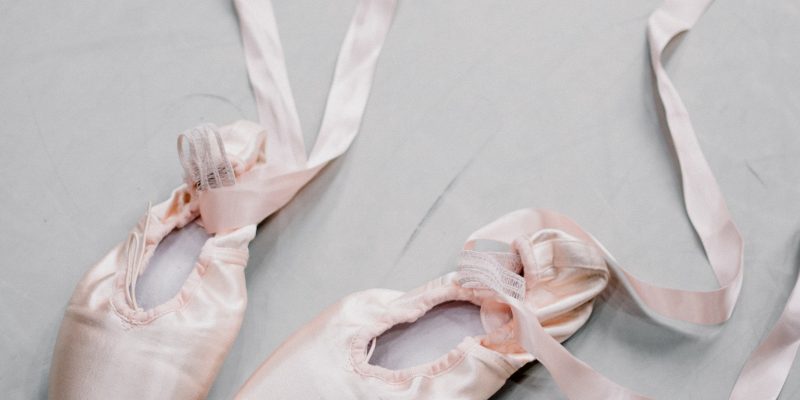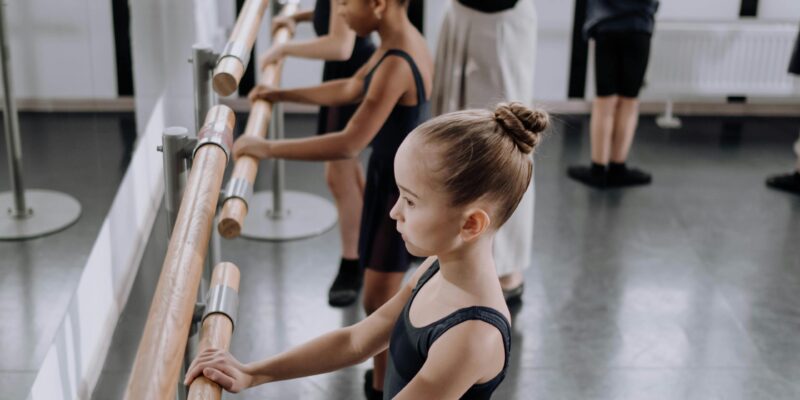Struggling to separate who you are from disordered eating can feel overwhelming, especially for dancers. Many dancers are praised for “healthy” eating or strict training routines, making it easy to define yourself by those behaviors. But your worth is bigger than any diet rule or exercise pattern. This post offers practical strategies to reclaim your identity, nourish your body, and move through dance with confidence.
Read More...Understanding RED-S in Dancers
Dance demands strength, stamina, and artistry, but too often the fuel required to sustain it is overlooked. Relative Energy Deficiency in Sport, or RED-S, can quietly undermine a dancer’s health, performance, and longevity. From hormonal disruption to injury risk and burnout, the consequences are real and far-reaching. Understanding RED-S is a critical step toward protecting both your body and your career.
Read More...Should dancers eat less when not dancing?
Time away from the studio can feel unsettling for dancers, especially when routines change and movement decreases. Many dancers wonder if eating less during rest days or injuries is necessary or helpful. The truth is that fueling does not stop just because dancing does. This article explains how to nourish your body, protect your mental health, and support recovery when you are not actively dancing.
Read More...Balanced and Guilt-Free Holiday Eating Tips for Dancers
Holiday meals can bring joy, connection, and tradition, but they can also feel stressful for dancers navigating food and body expectations. The combination of rich foods, disrupted routines, and social pressure can challenge even the most supportive relationship with food. This article provides practical, dancer-specific strategies to help you feel grounded, nourished, and satisfied during the holiday season.
Read More...Dealing With Diet Talk: Your Ultimate Guide
If you’re embracing intuitive eating or moving away from diet culture, chances are you’ll encounter unwanted “diet talk.” This article shares five practical steps to recognize diet talk, set boundaries, and respond with confidence and self-care. Learn how to navigate comments about food, weight, and body image without losing focus on your progress. Feel empowered to protect your mindset and foster more supportive conversations around food and body.
Read More...Mindful Eating For Dancers
Mealtime mindfulness sometimes feels out of reach. The reality? Mindful eating can be a gentle skill that brings satisfaction back to your plate. In this article, we’re uncovering how mindful eating can help dancers, and 10+ steps to benefit from this useful tool.
Read More...How to Handle Disappointment at Your Dance Audition
Audition rejection is tough, but it doesn’t have to define a dancer’s journey. This post explores how to validate your feelings, reflect on the experience without blame, and create a practical strategy for moving forward. By shifting away from restrictive food or training behaviors, dancers can protect both their performance and well-being. With compassion and sustainable tools, rejection becomes redirection toward growth and new opportunities.
Read More...Nutrition Without Obsession
The Healthy Dancer® centers around Nutrition without Obsession to build a healthy relationship with food while freeing oneself from rigid rules and diet culture pressure. Only then can tools like the nutrition facts label be used in a supportive, non-restrictive way. In this post, you’ll learn when labels can help you fuel for performance, when to set them aside, and how to integrate them into your choices without losing flexibility or joy in eating.
Read More...Dance Parents: Your Role Matters
As a dance parent, your role in fundamental to the success of your dancer’s career. This article provides first-hand experience and 5 key strategies to consider to support your dancer’s passion.
Read More...Dancers and Overeating
If you’re a dancer who feels stuck in a loop of “good” days and “bad” nights, know this: you are not doing anything wrong. You’re likely underfed, overtrained, and emotionally taxed. This article will help you understand why dancers “over-eat,” how that differs from binge eating, and how to stop swinging between feeling extremely in control and completely out of control around food. Spoiler: the answer is rebuilding trust with your body.
Read More...Can Dancers Create A Healthy Relationship with Food?
Your relationship with food is more than what’s on your plate— it’s the foundation of a sustainable, fulfilling dance career. And while “positive” might sound ideal, it can also feel unrealistic— especially if you’re struggling. That’s why I encourage dancers to aim for a working relationship with food: one that evolves, grows, and supports you through every stage of your journey. Here’s a step-by-step guide to help dancers build a healthier, more functional relationship with food.
Read More...Emotional Eating for Dancers: 5 Strategies to Navigate It Without Shame
The act of eating is emotional, and that’s not a flaw. It’s a fact of being human. And for dancers, who exist in high-pressure, body-conscious environments, this connection often runs even deeper. In this article, we’ll explore the #1 reason dancers turn to food emotionally, along with a practical, compassionate roadmap for navigating emotional eating.
Read More...5 Steps to Overcome Dancer Burnout and Reignite Joyful Movement
Dancers can feel burn out from a high-pressured environment that is unfortunately coupled with impossible food and body beliefs. In this instance, a dancer’s relationship with movement feels less joyous and more punitive. Learn more about how to prevent dancer burnout.
Read More...Common Myths About Intuitive Eating
Intuitive Eating isn’t a trend. It’s a transformative way to reclaim your autonomy over food and body— and it’s 100% compatible with the demands of a dancer’s life. But despite the growing popularity of the Intuitive Eating lifestyle, misconceptions are everywhere— and they can hold you back from fully embracing this powerful, non-diet approach. This article breaks down the most common myths and sets the record straight as to why you can benefit from the approach alongside performance nutrition.
Read More...What Is Food Flexibility & Why Do Dancers Need It?
Dancers require flexibility both in the studio and out. Heal your relationship with food using Food Flexibility. The more flexible you are in your food choices, the more willing you are to move through life’s vast experiences with agility and ease.
Read More...Food Neutrality & Healing From Dancer Diet Culture
For dancers, food neutrality means viewing food as simply fuel, not as “good” or “bad,” and making choices based on hunger and satisfaction, rather than guilt or restriction, to support physical and mental well-being. Viewing foods as “good” or “bad” (whether for health or performance) evokes anxiety and guilt, making us vulnerable to an all-or-nothing mindset. In this article, we uncover the benefits of a food-neutral lens for dancers.
Read More...Reduce The Risk of Disordered Eating & Eating Disorders In Your Studio
Dance educators are on the frontline: from cultivating an environment that supports the longevity of a dancer’s career to identifying challenges that occur inside the studio. Dance educators have the upper hand in helping to reduce rates of disordered eating, eating disorders, and body image challenges in the industry. This article will break down 5 specific strategies that dance educators can implement to cultivate a healthier environment in their studios.
Read More...Diet Culture in The Dance Industry
Diet culture is a system of beliefs that idolizes weight loss. In diet culture, it’s believed that thinness equates to health. In this article, we’ll unpack what diet culture is and why it’s harmful for dancers. We’ll also explore why one of the core values of The Healthy Dancer® framework is about dismantling dancer diet culture.
Read More...Body Image Support for Dancers
How can dancers build a supportive body image? This article deconstruct various tools like body neutrality and body image resilience to help dancers build a supportive body image and lifelong body confidence.
Read More...25+ New Year’s Resolutions for Dancers
We know that diets don’t work within a year of starting and that weight cycling comes with countless negative health implications. In this article, I’m sharing my favorite non-diet resolutions to start your New Year in a way that supports YOU. The goal is to feel confident in your body, competent with your food choices, and supported mentally, physically, and emotionally.
Read More...





















